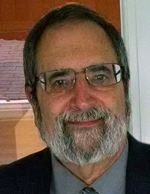By Laurie Baron

Pritchard (née van Binsbergen) was enrolled in the Social Work school at the University of Amsterdam when Germany occupied the Netherlands in 1940. Outraged by the firing of a Jewish professor in her program in 1941, she joined an underground student group which transcribed BBC broadcasts and clandestinely disseminated printed copies. The Germans imprisoned her for seven months.
In the summer of 1942, she rode her bicycle past a Jewish orphanage where the Gestapo was conducting a raid. When some children refused to climb into the back of an awaiting truck, the Germans grabbed their arms and legs and heaved them into it. At that moment Marion decided she must shield other Jews from the same fate and formed a rescue ring with ten of her friends, two of whom were Jewish.
Most of her activities entailed procuring clothing, food ration cards, hiding places, and medical care for Jewish “submarines,” the epithet bestowed on those who evaded arrest and deportation, and moving them to temporary safe houses when there were credible tips about imminent German roundups. She also supplied counterfeit identity papers to Jewish infants and adults whose appearance enabled them to pass as Aryans.
When Marion was unable to locate a hiding place for a Dutch man and his three children, she approached an elderly friend of her parents about letting the four stay in a vacation cottage outside of Amsterdam. Marion moved into the home to care for the Jewish family and constructed a hideout under the floorboards. Her wards repeatedly practiced escaping into the cubby hole as quickly as possible in case the Germans unexpectedly searched the house. Shortly after one such raid, a Dutch collaborator returned correctly assuming that the fugitives would believe the danger was over and come out of wherever they were being concealed. To avert their impending arrest, Marion grabbed a pistol and killed him. She contacted a local baker and persuaded him to remove the body in his delivery truck and bring it to an undertaker who buried it in a coffin along another corpse. Marion regretted killing the collaborator, but felt she had no viable alternative. She continued to hide the father and his children and assist Jewish “submarines” for the duration of the war.
Although Marion modestly focused on the one family she harbored, I learned in the course of the interview of others−Jews and Gentiles−who had managed to survive on false papers or in hiding due to her efforts. When I tracked some of them down and spoke to them, I realized how many people owed their lives to her.
After the war, Marion volunteered to work in the UNRRA Displaced Persons Camps in Germany. There she met her future husband, an American GI, and, followed him to the United States. Her first job there was teaching reading to poor African American youth in Harlem.
As Marion responded to a litany of questions I posed about her childhood, she realized that her acute sense of responsibility for the innocent victims of blatant injustice was deeply rooted in the way her parents treated her and practiced the values they taught her. Her British mother raised her in the Anglican Church and sent her daughter to boarding schools in England during her high-school years. Her father was a liberal Dutch judge who hated the Nazis and the anti-Semitic policies they imposed on the Netherlands.
Reflecting on her life, Marion asserted, “I believe that courage, integrity, and a capacity for love are neither virtues, nor moral categories, but a consequence of a benign fate. In my own case, parents who listened to me, let me talk, and encouraged in every way the development of my own authentic self. It may be redundant to add that they never used corporal punishment in any form.” When I asked Marion about what she considered her greatest accomplishment as a parent, she proudly disclosed that her son had been a conscientious objector during the Viet Nam War.
Reading her obituaries, I found out that Marion had been a vocal proponent of legalizing Gay marriage in the past decade. That reminded me of two incidents she had recounted during her interview. As a girl, she had taken ballet lessons and asked her parents why her fellow students had mocked an instructor who was a homosexual. Her parents, whose attitudes were remarkably progressive for that era, discussed homosexuality with her and warned her against stereotyping people on the basis of their gender orientation. Perhaps it was not a coincidence that one of the men she saved was a gay Jewish ballet dancer. Since he had Aryan looks, she acquired false papers for him and placed him in the home of a Gentile woman. To make it appear that he was her spouse, Marion advised him to sleep in the same bed with the woman. Otherwise the Germans might raid the house and conclude he wasn’t really her husband. A month later the man pleaded to Marion to be transferred to another hiding place because the woman had become sexually interested in him. Marion honored his request despite the dangers of finding another rescuer and escorting the man to his new refuge.
Marion admitted that during the war there were times that she succumbed to her fears and did not act upon her convictions. Then she added, “We all have memories of times we should have done something and didn’t. And it gets in the way the rest of your life.” Truly virtuous souls like Marion Pritchard have far less of those memories to regret than the vast majority of humanity. זיכרונה לברכה.
*
Baron is a professor emeritus of history at San Diego State University. He may be contacted at lawrence.baron@sdjewishworld.com, or you may comment on this website provided the rules below are observed.